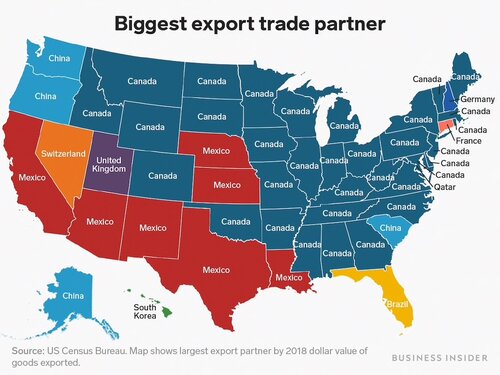
The perils of trade wars and stalled trade agreements have formed a black cloud hanging over the trade-dependent Pacific Northwest economy. So, news of a breakthrough on NAFTA 2.0 and phase one of a trade deal with China that will delay new tariffs has been a welcome holiday present, according to Reed College economics professor Kimberly Clausing.
Speaking to a Portland Business Alliance (PBA) audience last week, Clausing said it also was good news to learn container shipping service would return to the Port of Portland after a three-year absence.

However, she said the good news isn’t all good. The Port of Portland container service will be monthly, not weekly as before, layers of tariffs remain on US-China trade and the US-Mexico-Canada Trade Agreement may contribute to higher prices because of stricter labor and environmental provisions. China is Oregon’s largest export partner, accounting for 20 percent of shipments.
Clausing is author of a new book titled, “Open: The Progressive Case for Free Trade, Immigration and Global Capital,” in which she is critical of President Trump’s “America First” trade and immigration policies. She also was critical of political progressives such as Senator Bernie Sanders for opposing multilateral trade agreements.
After the devastation of World War II, Western leaders created multilateral trade conventions to spur global economic growth and lessen friction between nations. Those conventions evolved into rules of law governing international trade practices and fostering free-trade agreements. Trump, progressives and labor unions have criticized free-trade agreements for hollowing out US manufacturing as companies outsourced parts or entire products and globalized supply chains.
“Some studies say lower-priced goods from China may have caused the loss of 1 to 2 million American manufacturing jobs over the past decade. But 6 million jobs are lost and created every quarter in the churn of the economy, and very few of them are trade-related,” Clausing told the PBA audience.
Immigrants to the United States have found themselves in the same bullseye caused by lost jobs and declining opportunities for working-class Americans. As the Portland Tribune reported, “[Clausing] believes tariffs and restrictions on immigration are bad for the economy, and especially hurt lower-income workers by increasing the cost of goods and limiting the job-creating potential of immigrants. ‘Blaming foreigners and immigrants for our problems is wrong.’”
“Instead of looking at trade and immigration as a zero-sum game, Clausing said that with reasonable regulations, both can benefit the country,” according to the Tribune story. “She was especially supportive of more immigration, saying newcomers do jobs that Americans shun, like agricultural work and elder care. Clausing also said immigrants start new businesses at a higher rate than those who have lived in the country all their lives, creating more employment for everyone.”



